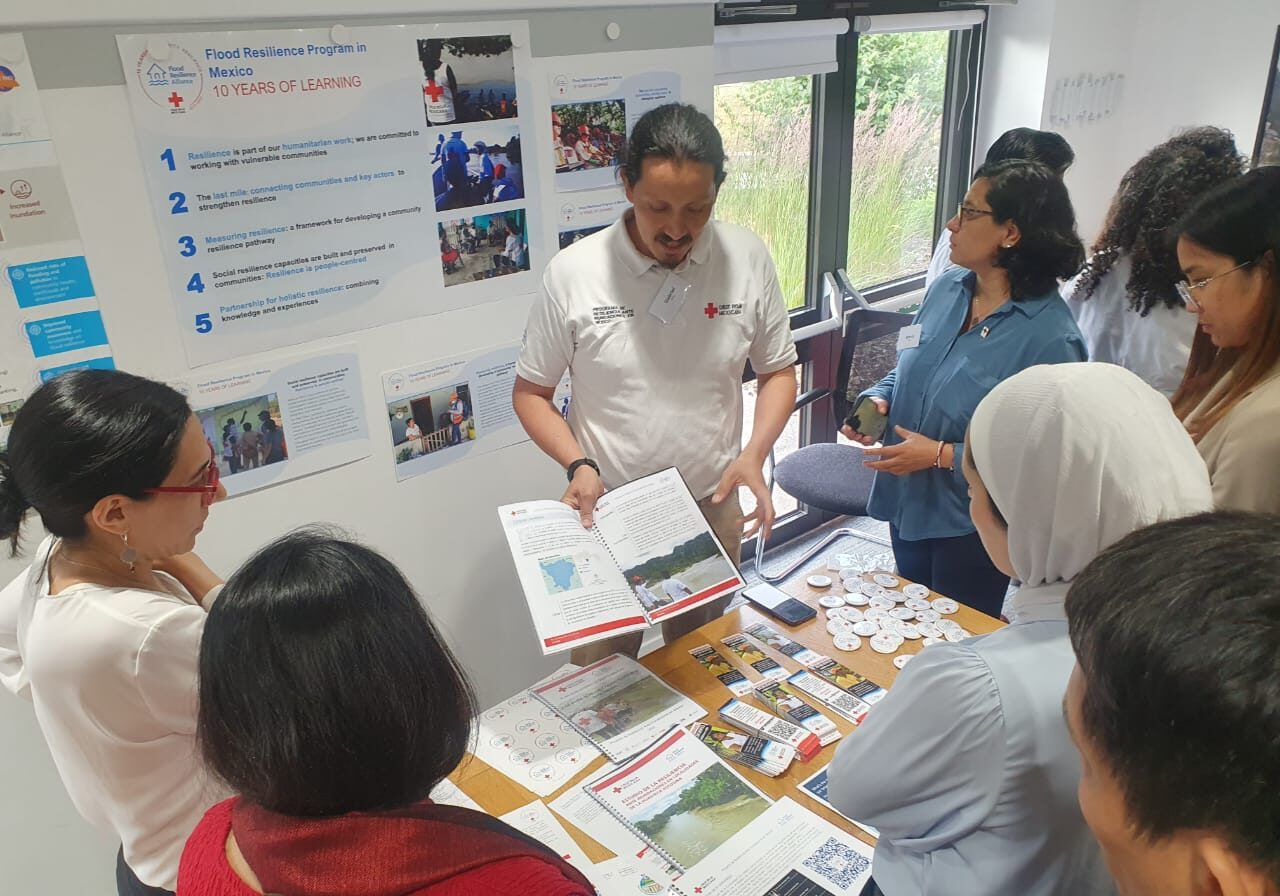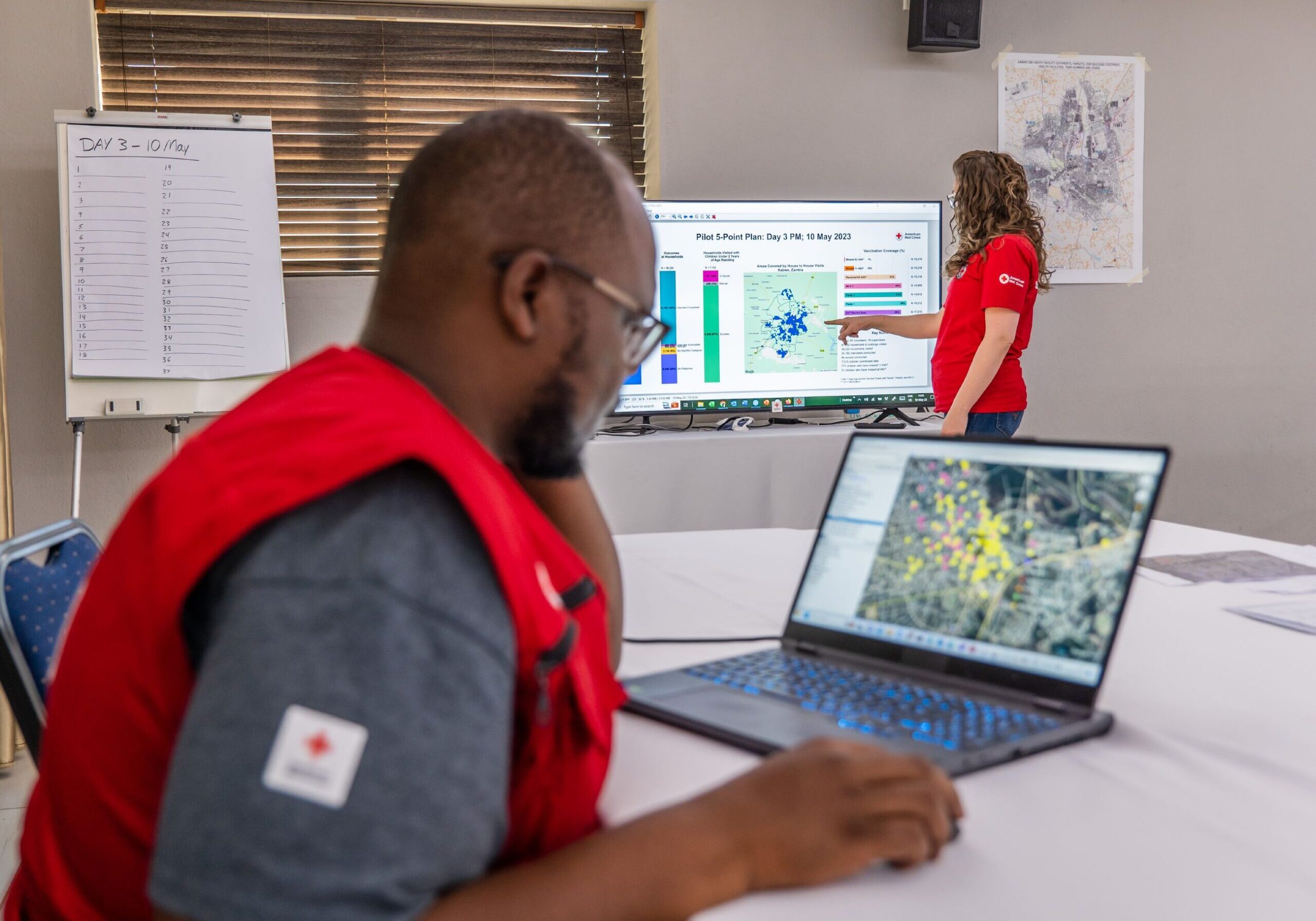Small Business Preparedness – Resources for National Societies
Resources for RCRC National Societies
Learn how you can help support small businesses build their resilience.

Workshop in a Box
Interested in facilitating a workshop on small business preparedness? Check out our Workshop in a Box to access all the resources you need to get started.
Resource Compendium
Interested in learning about what other business resilience practitioners are doing in the small business preparedness space?
Check out our curated resource compendium of activities and learnings:

Micro-entrepreneurship (ME) programmes support income generation activities implemented with a comprehensive and bottom-up approach, in which beneficiaries participate in the identification and design of their microentrepreneur activity, considering specific needs and capacities.
The ready 360° program aims to build greener resilience by strengthening disaster preparedness and response capacities at the individual, family, entrepreneurial and institutional levels.
Key results of the study on the capacities of farmers and fishers to cope with the risks of disasters and natural hazards in Saint Lucia and Dominica.
Opportunities and barriers to the access and use of climate information for small and medium enterprises (SMEs) in Uganda and Kenya.
Ready Rating is a free program that helps businesses, schools and organizations become prepared for disasters and other emergencies.
Free training program to support immigrants entering the labour market.
ILO devised a user-friendly model business continuity management plan which aims at supporting small and medium-sized enterprises (SMEs) in their effort to develop contingency plans to protect their workers and businesses from the consequences of sudden disasters.
This scoping study analyzes the business context and needs for specific disaster risk management standards for small- and medium-sized hotels. as part of the the Hotel Resilient Initiative.
This document has been produced as summary pieces of key lessons learned regarding the role of businesses and businesses preparedness in protecting livelihoods and supporting community recovery following disaster events.
This report proposes and applies an alternative approach to building resilience for MSMEs in the ASEAN region, specifically in Malaysia and Thailand.
The Extreme Heat Income Micro-Insurance, Arsht-Rock's new parametric insurance product, will help 21,000 women in India cover wages they would have otherwise lose due to climate-driven extreme heat.
Cities can play an important role in ensuring decent conditions for these workers, protecting them from the effects of extreme heat and promoting the right to healthy and safe workplaces. Here’s how cities can get started.
This case study provides details regarding the results of the IFRC-Turkish Red Cresent Livelihoods Recovery Programme launched in response to the earthquakes that caused massive loss of life and damage to homes and businesses in February 2023.
Innovate UK’s Design for Future Climate, Adapting Buildings programme has produced a report and summary on how buildings can be prepared for climate change.
This report makes the case that a unified effort of business partnership is needed to effectively manage the unexpected difficulties that arise as a result of disasters.
This document, and companion brief The Role of Business in Community Recovery, have been produced as summary pieces with key lessons learned regarding the role of businesses and business preparedness in protecting livelihoods and supporting community recovery following disaster events.
The Self Employed Women’s Association (SEWA) launched a pilot insurance system to address the urgent need for members to cope with extreme heat and build resilience against its impact.
A tool to leverage the power of data, awareness and understanding to mitigate risks, minimize losses and promote the sustainability of SMEs.
The Cities Alliance Joint Work Programme (JWP) for Equitable Economic Growth in Cities commissioned the WIEGO Network to explore the key role of access to public space to the livelihoods of working poor women and men in the informal economy, as well as good (and bad) practice examples of regulated access to public space for different groups of informal workers in different cities around the world.
